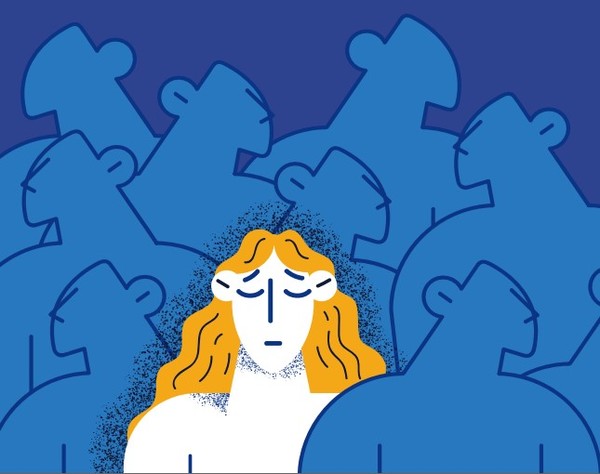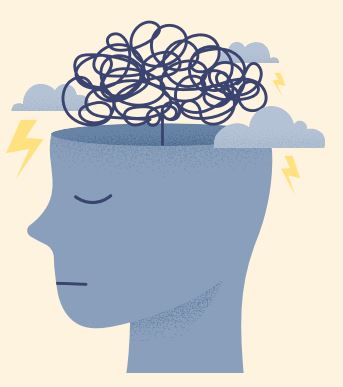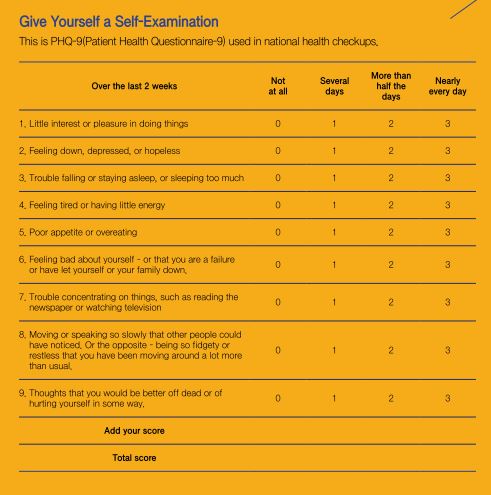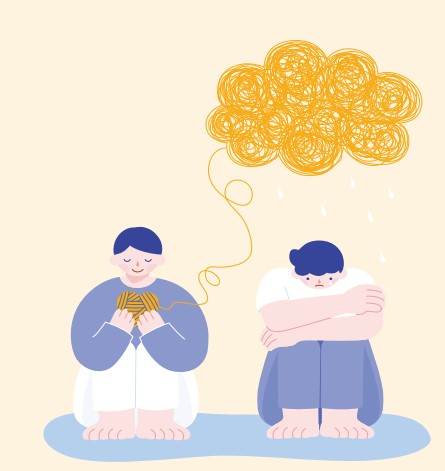
Today, many young people are suffering from depression. According to the Health Insurance Review & Assessment service, people in their 20s and 30s have shown the largest increase in the rate of depression, which has seen a 45.7% increase in the four years leading up to when the survey was taken in 2021. Three to four out of ten people who suffer from depression are young people.
What is Making Young People Depressed?
There are many reasons why young people suffer from depression. According to the Ministry of Health and Welfare in 2022, relative deprivation might be the cause, which leads to excessive comparison with others. As the saying goes, “the grass is always greener on the other side”, many young people see their future in a negative light and shut themselves away from society. In addition, interpersonal relations are also a big factor for depression. Noh Pu-reun, clinical psychologist and office manager of the mental health promotion team at Jeonju Mental Health Welfare Center, mentioned that from January to August more than 2,400 young people visited the center, up 15.9% since 2020. Most of them suffered depression after they experienced problems in interpersonal relationships at their workplace or between friends, family, or with their partners. For example, they might undergo severe interference from family in their life, even though they are adults. In the workplace, unfair situations can arise from excessive self-sacrifice and cause distress. The reasons that most commonly trigger depression are not special, but arise from daily life. Because of this, you may not know whether you suffer from depression. Thus, paying attention to the symptoms that appear in your body is important.
Warning Signals from Your Body
According to the DSM-5 (Diagnostic and Statistical Manual of Mental Disorders, Fifth Edition), feeling down all day long, a decreased interest in life, feelings of worthlessness, and decreased concentration are the mental symptoms of depression. In severe cases, suicidal thoughts are the most serious symptom of depression. Examples of physical symptoms of depression can be weight loss or gain, insomnia or hypersomnia, and fatigue. In addition, people might reduce their social activities; if depression worsens, they might avoid meeting people altogether due to feelings of depression and helplessness.
What’s Happening inside My Brain?
According to 《The Upward Spiral》 written by Alex Korb and 《오늘도 우울증을 검색한 나에 게》 written by doctors of psychiatry in Korea, the fundamental neurotransmitters in the brain are norepinephrine, serotonin, and dopamine. These neurotransmitters handle different types of tasks in the brain, and each neurotransmitter system contributes to depression in different ways. Norepinephrine enhances thinking, concentration, and the ability to cope with stress. Serotonin improves willpower, a motivation to be active, and mood. Dopamine is essential for increasing pleasure and changing bad habits. There are many hypotheses for why depression occurs, but one hypothesis is that a lack of neurotransmitter secretion is the cause of depression. When a person is stressed, the neurotransmitters that control emotions and behavior become imbalanced and their secretion decreases. This phenomenon has a negative impact on mood, appetite, sleep, etc. Additionally, some people are naturally unable to secrete neurotransmitters properly and have decreased function in specific areas of the brain that are associated with depression. This genetic vulnerability may predispose someone to develop depression.

Right Medicine for You
Pharmacotherapy is a well-known treatment method for depression. Pharmacotherapy reworks the imbalance of nerve transmission back into balance. According to 《토닥토닥 정신과 사용 설명서》, the most widely used medications are Selective Serotonin Reuptake Inhibitors (SSRIs). Types of SSRIs include Escitalopram, Fluoxetine, Fluvoxamine, Paroxetine and Sertraline. These medications can be taken in different ways. Pill forms are the most common, but if taking pills is too difficult, you can take them by mixing them with water, squeezing them into your mouth, or by intravenous injection every few weeks. Potential side effects of SSRIs include increased suicidal thoughts in some people, insomnia, anxiety, indigestion, headaches, decreased libido, etc. It works well for most people without side effects, but others may experience them. Therefore, if you think you would benefit from medication, it is important to consult with your doctor to find the type and dosage of medication that is right for you.
The most accurate diagnosis of depression is through consultation with an expert. However, if you want to self-diagnose yourself, Noh recommends using the PHQ-9(Patient Health Questionnaire-9) used in national health checkups. You can also do a selfexamination for depression and other mental health conditions on the Jeonju Mental Health Welfare Center website.

A score of one to four indicates that you are not struggling with depression. A score of five to nine indicates that you have some symptoms of depression. A score of 10 to 19 means you are going through depression. If the score is between 20 to 27, it means that you have a very serious condition, so it is recommended that you contact professional organizations or receive counseling immediately.

If you are a resident of Jeonju and need mental health help, you can visit the Jeonju Mental Health Welfare Center. The center focuses on restoring the daily life of those who receive counseling. It connects them with appropriate services and provides programs so that people can quickly recover from their current state. The services of the center vary by field. It is divided into severe mental disease management, recovery support, mental health promotion, child and youth health promotion, and suicide prevention. In the area of severe mental disease management, the center provides services such as medical expenses support, emergency intervention, and family education. In recovery support, it provides a recovery support space, promotes health care, and supports residential independence. In the case of mental health promotion, mobile counseling vehicles are operating to find areas in need and provide services. In addition, it also helps citizens recover their mental health directly or indirectly in the event of a disaster. In children and adolescent care, the center provides customized services to help with recovery and to support treatment costs. Lastly, the suicide prevention project supports treatment costs and conducts suicide prevention education and campaigns. You can use the center if you call the Jeonju Mental Health Welfare Center or schedule an appointment to use it at the “online counseling room” or “counseling reservation” page on the center’s website.

Students and faculty members at JBNU can use the JBNU Happy Dream Center. If you want personal counseling, you can schedule a visit by phone or online. Up to ten professional consultations are provided after the initial one and additional consultations can be made depending on the case. Counseling is fifty minutes per session, and for JBNU students and staff, it is free of charge. Not only is individual counseling provided, but it also provides various education, special lectures, and group counseling programs. If you want to schedule an appointment, you can register through the Google Forms link on the center’s website after searching for available slots.
Noh, the clinical psychologist, said depression is a kind of “brain disease” rather than a disease caused by a weak will. “Just as there is a cure for a disease in the body, depression can also be cured with proper treatment and intervention,” she added. However, depression can happen again in the course of treatment, like a common cold. Therefore, it is best to prevent depression before it takes hold. Noh stressed that the most important thing to stay in a healthy state after counseling and overcoming depression is to maintain the basics. “You should keep your daily habits as regular as possible, such as not skipping meals and sleeping regularly at night,” she said.
|
The following are the seven life rules introduced by the Korean Academy of Medical Sciences and the Korea Disease Control and Prevention Agency to prevent and manage depression:
2. Exercise regularly. 3. Avoid drinking. 4. Have regular and balanced meals. 5. Maintain healthy sleeping habits. 6. Participate actively and positively in treatment. 7. Do not take warning signs such as aggressive and impulsive behavior lightly. |

Depression is a mental illness that anyone could get, just like a physical illness. Everyone has their own difficult life situations and anyone can become exhausted. When that happens, do not hide it or hesitate to ask for help from people around you or professional organizations such as Jeonju Mental Health Welfare Center. If you get the proper treatment and improve your lifestyle habits, you can improve little by little. There will be darkness at times, but the light will rise like a new day and chase away the darkness.
| Park Ji-woo Editor-in-Chief, Lee Da-yeon Editor, Park Hye-rin Reporter

